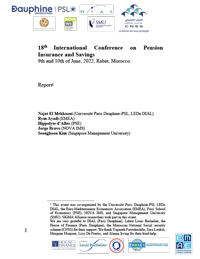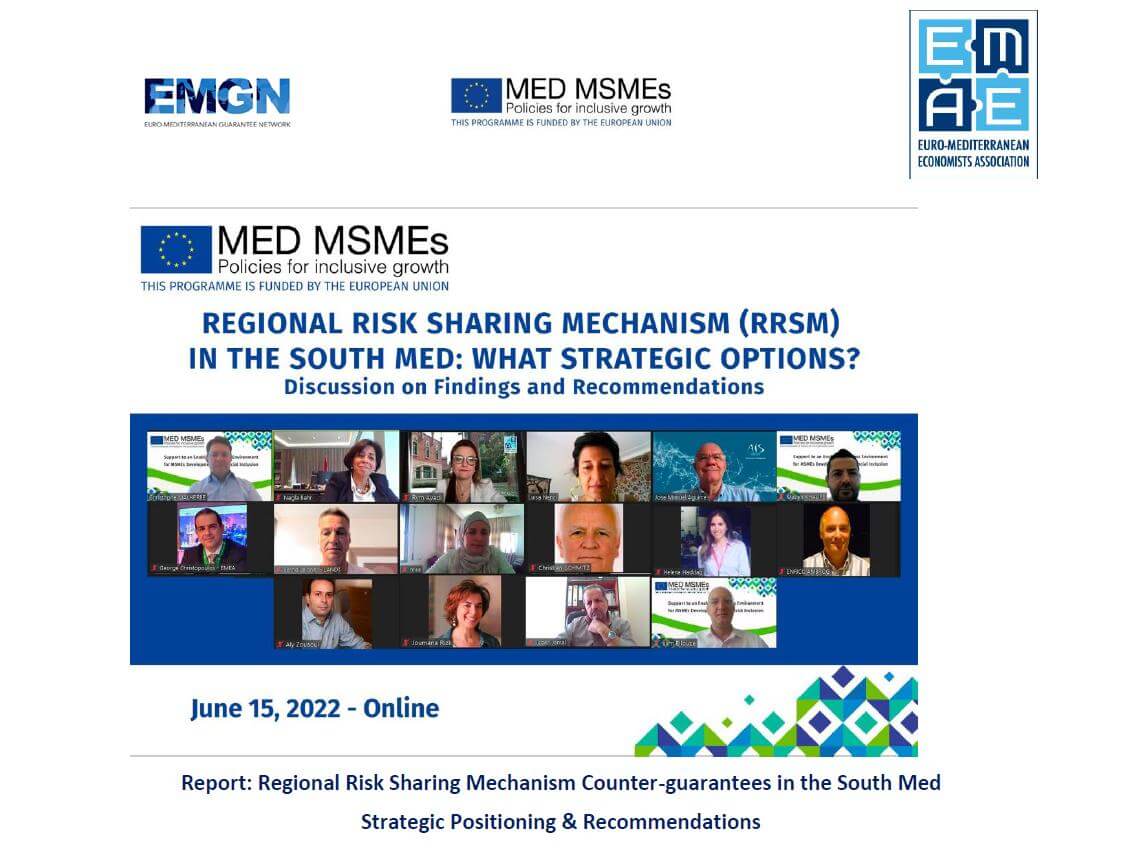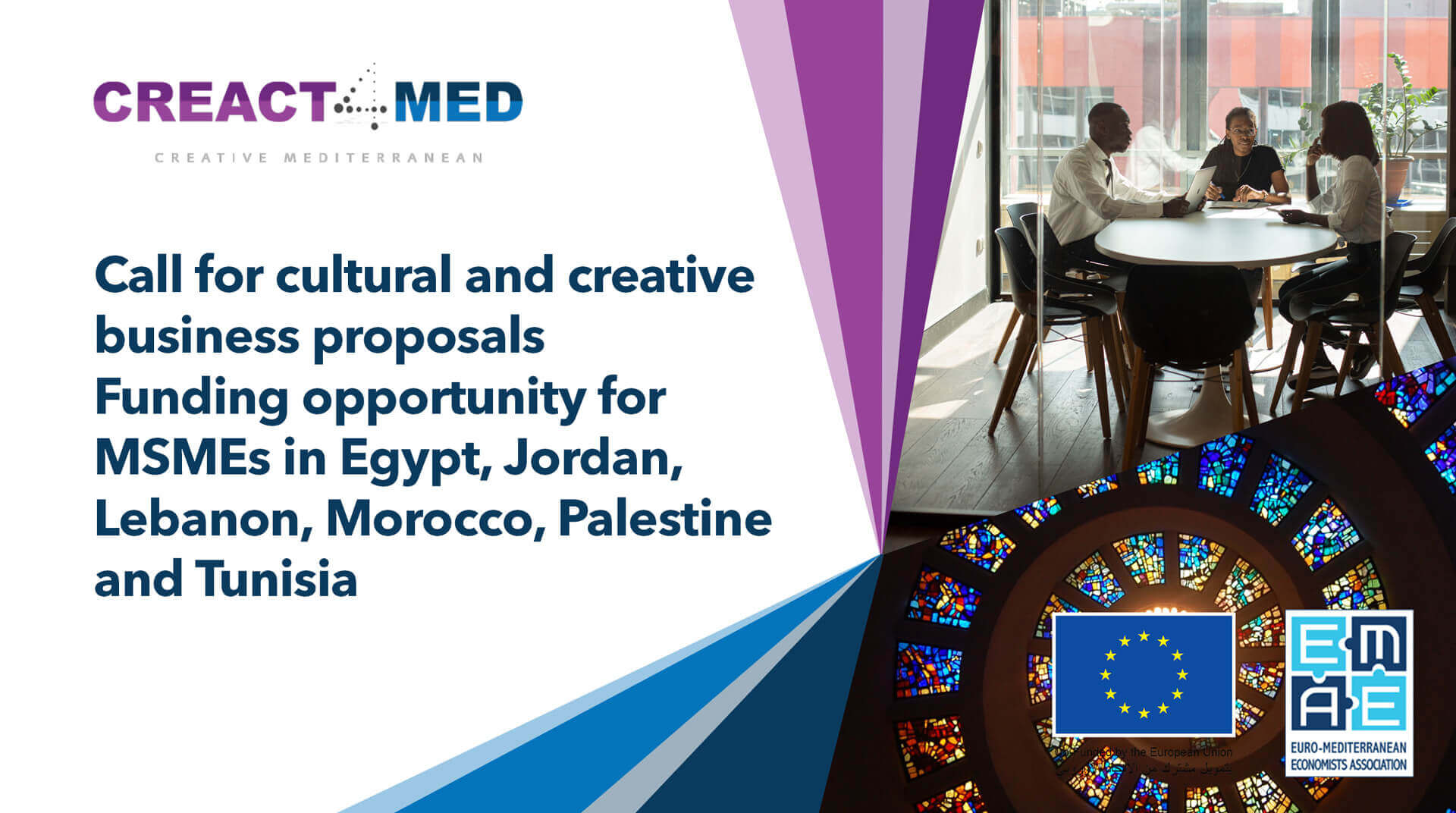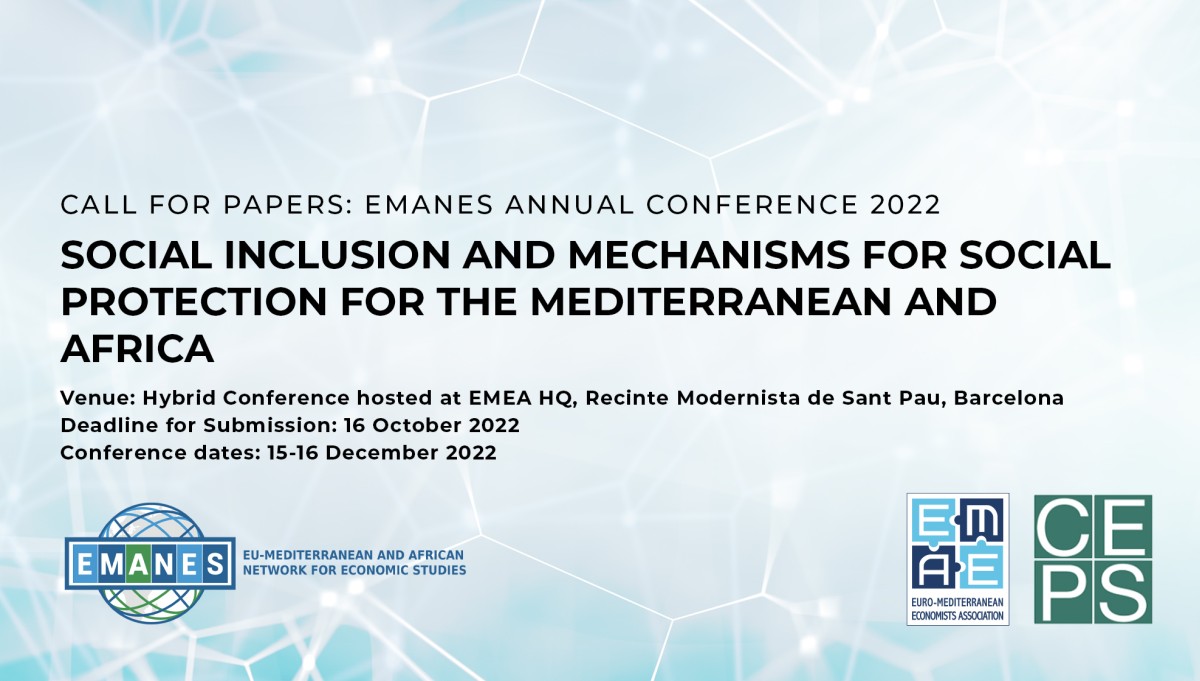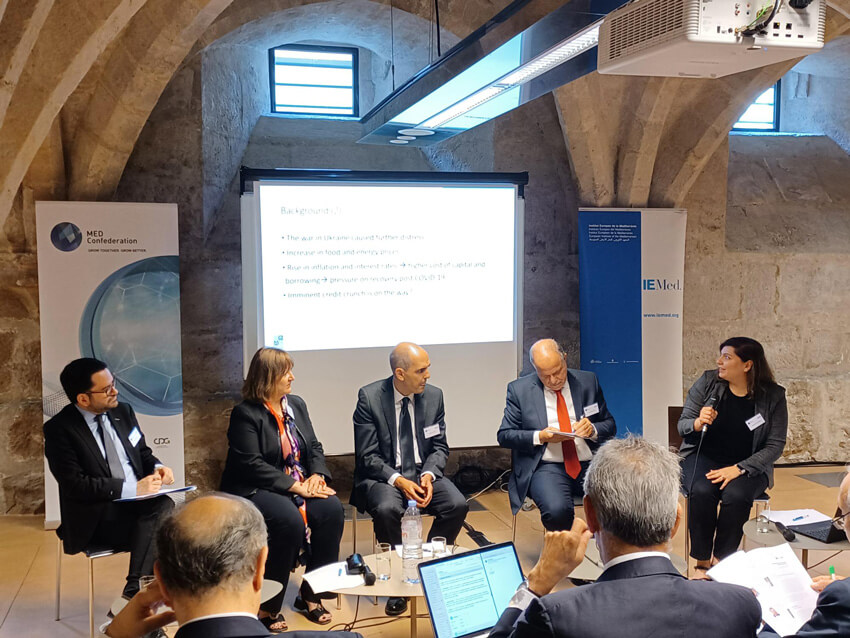The MED MSMEs Programme aims to contribute to the design of a Regional Risk Sharing Mechanism (RRSM) / counter-guarantee mechanism in the South Med. Bilateral consultations of National Guarantee Companies (NGCs), including 5 EuroMed Guarantee Network (EMGN) members, guided their recommendations for the strategic positioning of a regional counter-guarantee instrument in such a way as to maximize additionality and impact. This webinar aimed at gathering all National Guarantee Companies members of the EMGN and international cooperation partners to discuss conjunctly what could be the strategic positioning of a RRSM in the South Med and what could be the salient characteristics making it additional. MED MSMEs presented the results of their study on the topic. The webinar took place online on Wednesday 15 June 2022.
Mr. Christophe Malherbe (Team Leader, MED MSMEs Programme) highlighted that the interest in credit guarantee schemes increased after the COVID crisis as a countercyclical tool and a key pillar of the financial sector. Given the current and future changes and challenges creation of a RRSM can enhance NGCs’ capacity.
Ms. Naglaa Bahr (Co-Chair of the EMGN, Managing Director of Credit Guarantee of Egypt) pointed out the need to support the MSMEs sector given the uncertainty in the economic outlook in the region. NGCs proved their ability to provide support to the sector during and post COVID. Hence, a regional approach is momentum and needed to help NGCs grow and develop their products.
Professor Rym Ayadi highlighted that “In a context of increasing government and corporate indebtedness worldwide guarantee schemes are in the heart of the hurricane”. a risk sharing mechanism has to be well designed, applied carefully, and legally enforced to reduce information asymmetry, lower collateral requirements, and achieve additionality. As for counter guarantees, there are certain prerequisites that have to be fulfilled (most importantly to be well rated) in order for the scheme to be functional and achieve the desired goals including enhancing MSMEs access to finance, boosting development for specific sectors, creating jobs, accelerating policy objectives (such as greening the economy, empowering women and youth, and accelerating digitalization). However, given the current challenges it is expected that default rates will increase (creating Zombie institutions) and there must be a dedicated mechanism for those non-viable assets and to be separated from viable ones to ensure sustainability of a regional mechanism. Prof. Ayadi also highlighted that EMGN had a counter guarantee working group over one year and a half and published a report that can be shared with the group.
Ms Luisa Nenci (MED MSMEs Programme NKE) presented the results of the study. A RRSM could improve the overall quality of the financial system by backing up new facilities that will: open new market segments (internationalisation, green energy, impact finance), extend the portfolio (longer maturities, higher coverage), address the establishment of banking facilities to maintain/capitalise new businesses in operation, raise the above-ceiling risks, tackle the high increasingly rate of lending default and deal with the shrinking portfolio after COVID crisis (e.g. assisting in clearing the liabilities). However, there are identified risks including: resurgence of the risk linked to COVID in the 2022 / 2023 accounts is expected producing a high risk portfolio, the capacity to manage risk, data and evidence-based risk pricing with scenarios by sector, RRSM would face FX risk if currencies, other than USD and EUR, are used, sharing risks could also mean sharing premiums and then reducing NGCs revenues (national subsidy transferred regionally).
The study provides the following strategic recommendations: • The RRSM can generate economies of scale by becoming a centre of excellence (AAA) developing tools to manage new risks but also by providing new products and related new expertise to address and manage these new risks and achieve new business opportunities. • Donors should participate with capital, know-how and TA with significant investments on technology transfer for data sharing to increase regional cooperation.• The strategic intervention to creating a RRSM to become effective will need the support of a diagnostic to evaluate which option scheme can be successfully applied.
Link to MED MSMEs Webinar Report pdf

